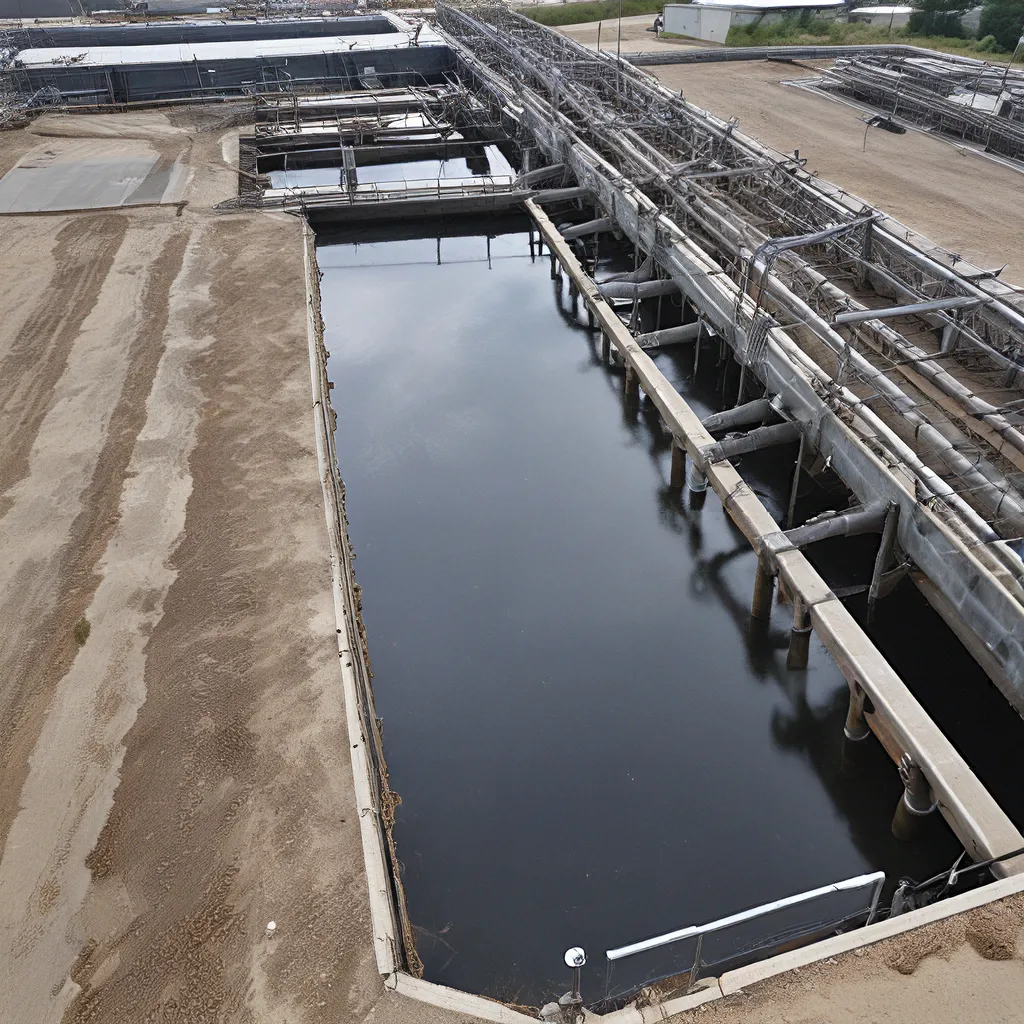
As a wastewater treatment professional, I’ve had the privilege of working alongside communities striving to make their water, energy, and overall infrastructure sustainable for generations to come. It’s a journey filled with both challenges and opportunities, and I’m excited to share my insights on this ever-evolving field.
Understanding the PFAS Landscape
One of the most pressing issues we’re currently facing in the wastewater industry is the emergence of per- and polyfluoroalkyl substances (PFAS). These “forever chemicals” have become a significant environmental concern due to their ubiquity and potential toxicity. In April 2024, the U.S. Environmental Protection Agency (EPA) promulgated the Final PFAS National Primary Drinking Water Regulations Rule, which aims to regulate six PFAS compounds: PFBS, PFHxS, PFOS, PFOA, PFNA, and GenX.
As a water utility professional, I know firsthand the implications of this new rule. It’s crucial that we stay ahead of the curve and prepare for the changes it will bring. That’s why I’m proud to say that my team at GHD has been assisting water utilities across the U.S. for several years in anticipation of this rule. We’ve been successfully delivering planning, treatability, design, and construction PFAS projects, helping our clients navigate the complexities of this challenge.
Navigating PFAS Treatment Technologies
When it comes to PFAS treatment, there’s no one-size-fits-all solution. The technologies available can be broadly categorized into PFAS capture and PFAS destruction methods. Each approach has its own strengths, weaknesses, and level of maturity. Our in-depth PFAS capability at GHD allows us to distill the growing field of technologies, helping our clients make well-informed decisions and select the best options to achieve compliance in a cost-effective manner.
It’s important to note that the efficacy of PFAS management is influenced by a variety of environmental factors and water quality parameters, such as the presence of co-contaminants, pH, total organic carbon (TOC), and the presence of inorganic ions. Our team partners with our clients to conduct comprehensive treatment system analysis, sampling, and PFAS testing data analysis, including forensics, to ensure the selected technologies are a perfect fit for their specific needs.
Embracing Digital Transformation
As the water industry continues to evolve, digital transformation has become a critical component of sustainable water management. At GHD, we’re dedicated to helping our clients navigate this digital landscape and derive tangible value from their investments.
Our GHD Digital team has worked with the City of Fort Myers, for example, to help them digitally transform their capital planning for network systems. By using advanced analytics, we were able to accurately triage the condition of pipes and develop their rehabilitation or replacement strategies. This kind of forward-thinking approach is crucial in today’s ever-changing world.
Fostering a Culture of Belonging and Trust
At the heart of our work at GHD is a commitment to making a positive impact on the communities we serve. We firmly believe that diversity, equity, and inclusion are essential components of delivering imaginative solutions and exceptional client service.
Our culture of belonging and trust empowers our people to thrive, unlocking their full potential and enabling them to tackle the complex challenges faced by our clients. By embracing diverse backgrounds, experiences, and perspectives, we’re able to develop innovative and responsive solutions that create lasting community benefit.
Navigating Uncertainty and Embracing Change
The wastewater industry is constantly evolving, and we must be prepared to navigate the complex challenges of today while planning for a better tomorrow. Whether it’s addressing the emerging PFAS issue, implementing digital transformation strategies, or fostering a culture of belonging and trust, our team at GHD is committed to working shoulder-to-shoulder with our clients to make water, energy, and communities sustainable for generations to come.
As we look to the future, I’m excited to see what new innovations and advancements will emerge in the field of wastewater treatment. While there may be uncertainties and ongoing debates, I’m confident that by embracing change, collaborating with our clients, and staying at the forefront of industry trends, we can continue to make a meaningful difference in the communities we serve.
If you’re interested in learning more about how GHD can support your wastewater treatment needs, I encourage you to explore our comprehensive services. Together, let’s navigate the complexities of this dynamic industry and create a more sustainable future for all.